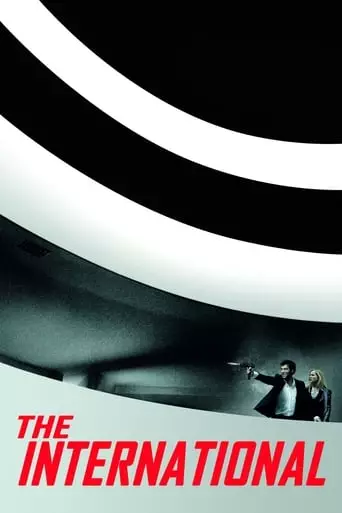
The International (2009) Watch Online Free
An interpol agent and an attorney are determined to bring one of the world’s most powerful banks to justice. Uncovering money laundering, arms trading, and conspiracy to destabilize world governments, their investigation takes them from Berlin, Milan, New York and Istanbul. Finding themselves in a chase across the globe, their relentless tenacity puts their own lives at risk.
The International (2009), directed by Tom Tykwer, is a gripping political thriller that explores the world of global financial corruption, arms deals, and the shadowy powers that shape international policies. The film follows Louis Salinger (Clive Owen), an Interpol agent determined to bring down the International Bank of Business and Credit (IBBC), a corrupt financial institution linked to arms trafficking. Together with a lawyer named Eleanor Whitman (Naomi Watts), Salinger uncovers a vast conspiracy, but the more they dig, the more dangerous the situation becomes. The story unravels across various global locations, including New York, Berlin, and Milan, with an intense focus on the pursuit of justice and the pervasive influence of money and power in global politics.
The film’s plot is built around a classic “whistleblower” story, focusing on the investigative journey to uncover and expose institutionalized corruption. Salinger is motivated by personal losses, having witnessed the assassination of a colleague and informant, which sets him on a collision course with both the IBBC and its far-reaching network. Along the way, the film emphasizes the indifference of bureaucracy and the deep entanglement between corporations, governments, and crime syndicates, reflecting on real-world scandals like the BCCI collapse
The International brings into sharp focus the theme of institutional corruption. The IBBC is portrayed as a monolithic, almost omnipotent institution that operates above the law, making it nearly impossible for an individual or small group to challenge it. This mirrors real-world concerns over the growing influence of multinational corporations and financial entities in global politics. The film delves into the moral ambiguities of seeking justice in such an environment, as the protagonists, despite their best intentions, must navigate a labyrinth of lies, betrayal, and murder.
The film also explores the psychological toll of pursuing such a high-stakes investigation. Salinger’s obsessive drive to uncover the truth slowly alienates him from those around him, demonstrating the human cost of relentless pursuit in an unforgiving world. The cold, impersonal nature of the film’s setting, often shot in drab, urban locales, adds to the overall feeling of futility and paranoia that permeates the narrative. This sense of isolation is starkly contrasted by the lavish offices and high-rise buildings that house the powerful individuals responsible for the corruption, emphasizing the divide between the “haves” and “have-nots”
Another significant theme is the global reach of corruption and the blurry lines between legal and illegal activities. As Salinger and Whitman uncover more about the IBBC, it becomes clear that the institution’s influence spans multiple countries and operates in the gray areas of international law. The film critiques not only the banking system but also the larger geopolitical structures that allow such entities to thrive without accountability
After watching The International, you may feel a mixture of unease and reflection. The film’s bleak portrayal of global corruption and its exploration of the moral compromises individuals must make in the face of such pervasive power can leave you questioning the integrity of institutions and systems. The unresolved nature of the ending may evoke feelings of frustration or a lingering sense of injustice, emphasizing the complexity of fighting entrenched corruption. Yet, there is also a sense of catharsis in seeing the protagonists make their stand, even though they are up against an overwhelming force. In the end, you might find yourself reflecting on the true cost of corporate malfeasance and the personal sacrifices made in the name of justice
